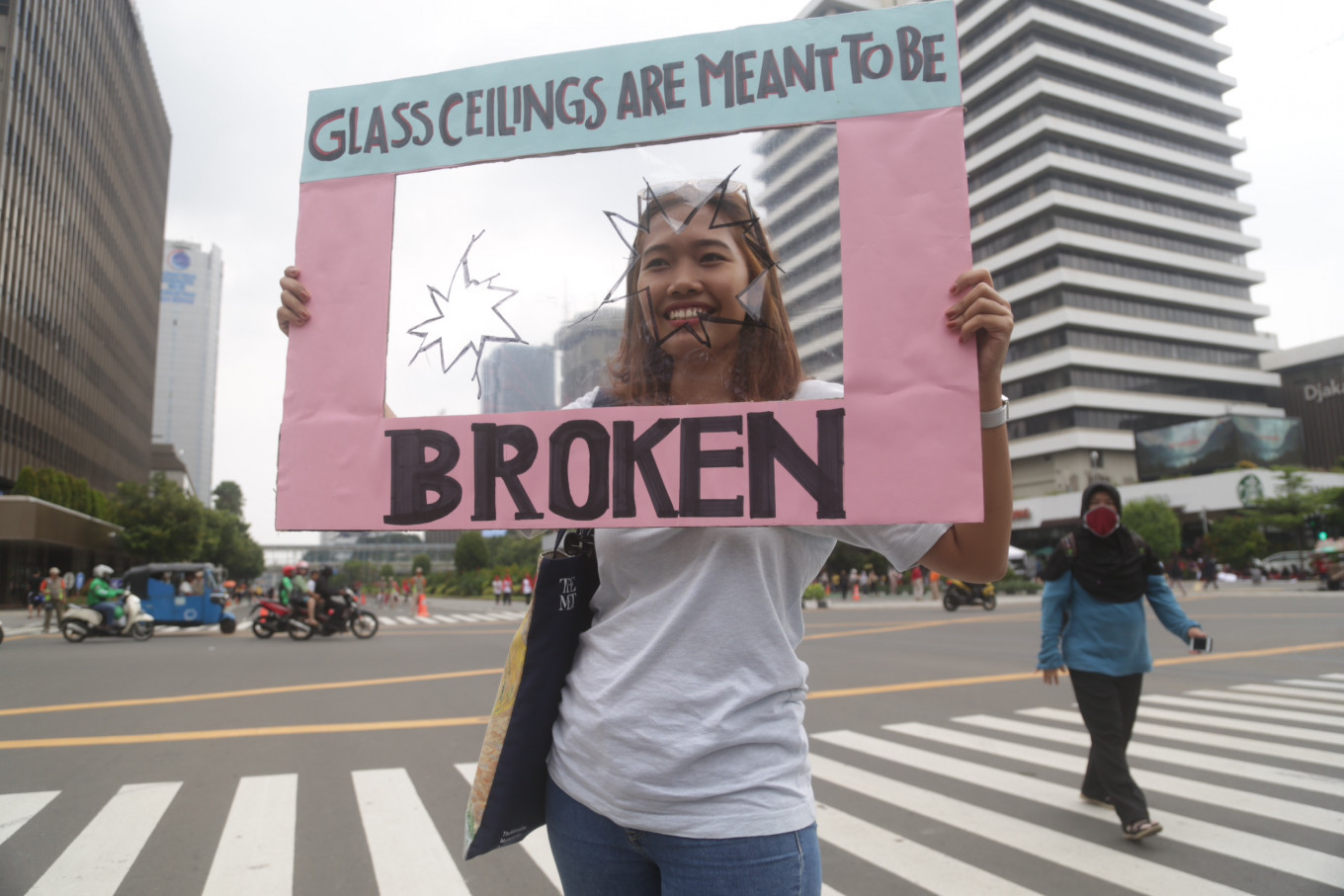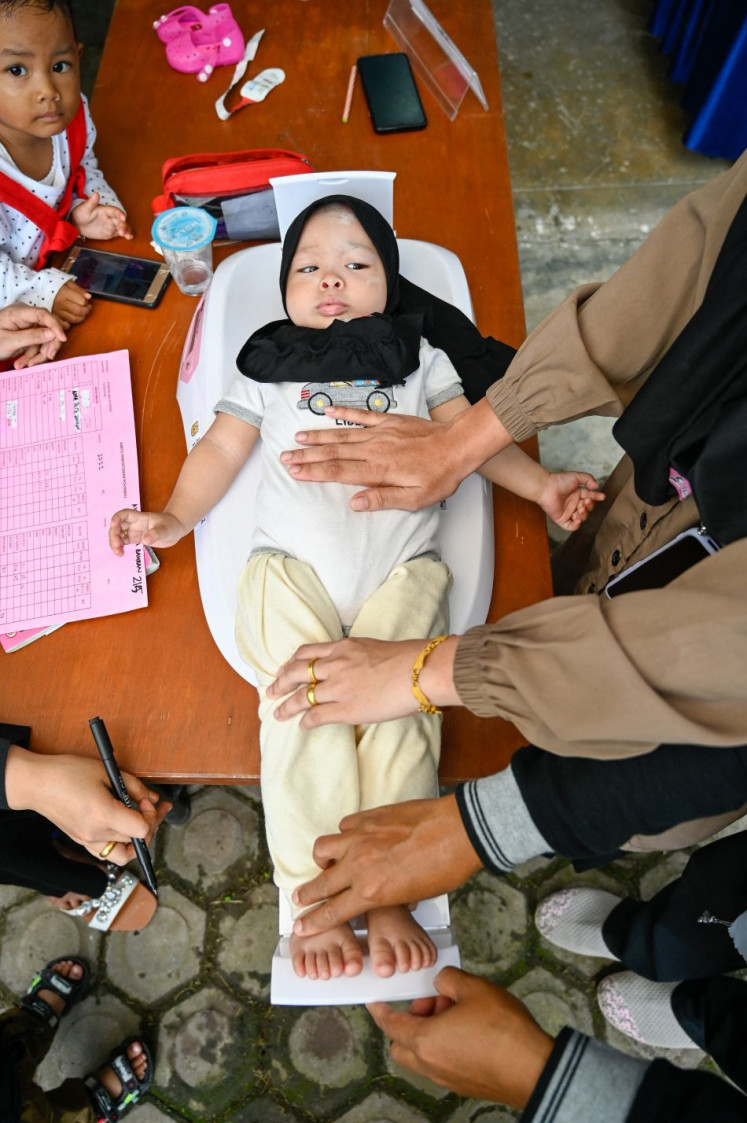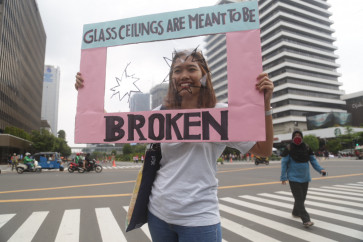Popular Reads
Top Results
Can't find what you're looking for?
View all search resultsPopular Reads
Top Results
Can't find what you're looking for?
View all search resultsWhat do feminists do during Ramadan?
In Indonesia, it is precisely the collaboration between secular and Muslim feminists that has greatly contributed to the success of the women’s movement in Indonesia.
Change text size
Gift Premium Articles
to Anyone
 Women activists from various organizations held a long march in the Thamrin area, Central Jakarta, on March 8, 2020. They demanded that the government resolve cases of violence against women; cancel draft laws that were discriminatory, not gender-related, and violated rights; and pass bills on eliminating sexual violence. (JP/Wendra Ajistyatama)
Women activists from various organizations held a long march in the Thamrin area, Central Jakarta, on March 8, 2020. They demanded that the government resolve cases of violence against women; cancel draft laws that were discriminatory, not gender-related, and violated rights; and pass bills on eliminating sexual violence. (JP/Wendra Ajistyatama)
H
ave you ever wondered what feminists do during Ramadan? Well, not every year – I am referring specifically to this year’s Ramadan, from April 2 to May 2.
If these feminists are Muslim, they normally fast -- that is not unusual. It is considered a holy month after all, and a time to engage in a purification of the body and soul. But what was unusual about this Ramadan?
Several things happened: The passing of the law on the elimination of sexual violence (UU TPKS) and the publication of special Eid edition of Gatra news magazine devoted to female ulemas.
May also marks the commemoration of two tragedies. First, the murder of Marsinah (April 10, 1969-May 8, 1998) -- a factory worker and activist who was kidnapped, tortured, raped and killed for demanding a wage increase for her fellow women workers. Secondly, from May 13 to May 15, 1998, Indonesian women of Chinese descent were gangraped and murdered during the riots that marked the violent transition from the New Order to the Reform era. Up until now, the perpetrators of these brutal acts against women have not been identified, let alone prosecuted.
Usually Eid, the end of Ramadan, which we call Idul Fitri or Lebaran, is considered a victory to celebrate after having completed a month of fasting. But this time, we did not have to wait until May 2 to celebrate. Only 10 days into the fasting month, on April 12, feminist activists, who had struggled for 10 years to have the bill passed, finally witnessed it happening. Puan Maharani, speaker of the House of Representatives, said it was a precious gift for all Indonesian women approaching Kartini Day. Kartini (April 21, 1879-Sept. 17, 1904) was an aristocratic woman who became a national hero and a symbol of women’s emancipation due to her progressive ideas.
Puan added: “This is also a gift for all of the Indonesian people and the progress of our nation”. She claimed it was the result of the collaboration between the women’s empowerment minister and the House.
Hello? Puan, you conveniently forgot the role of women activists, who also fought hard to lobby and advocate for the passing of the law, and moreover, who had to deal with the cases of and victims of sexual violence, as a result of the lack of a law to protect them.


















